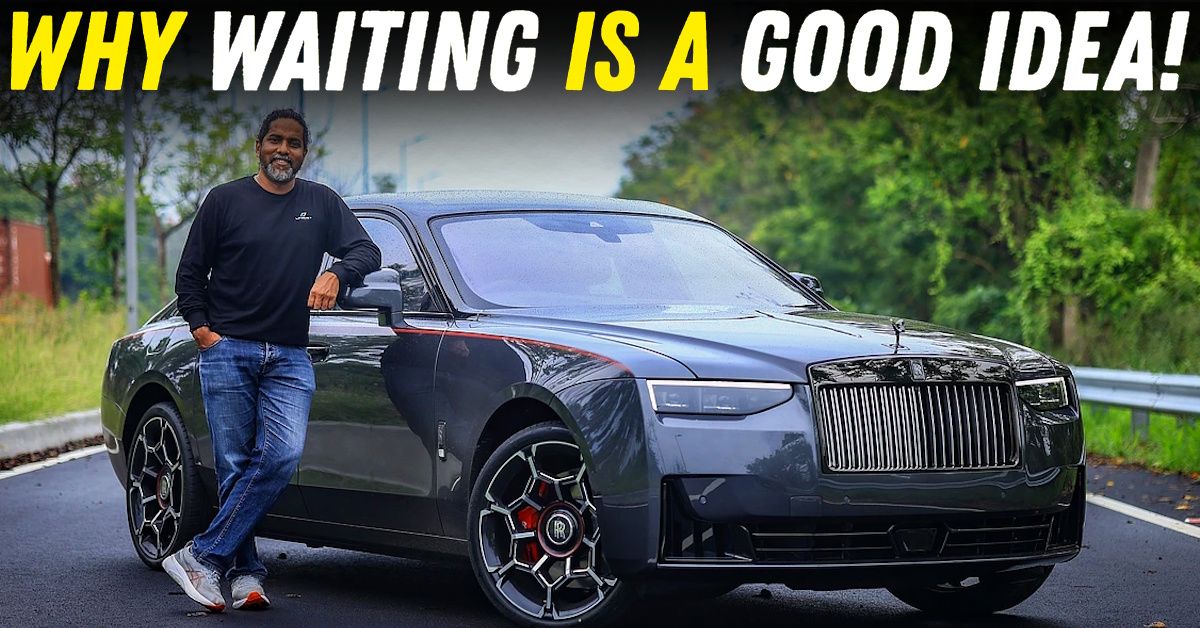Indians Holding Off On Buying UK-Made Luxury Cars: Here's Why


The Indian market for British luxury cars, a realm dominated by names like Rolls-Royce, Bentley, Aston Martin, and Land Rover, is currently experiencing a slowdown. This unexpected turn of events is primarily due to the anticipation of the India–UK Free Trade Agreement (FTA), which is expected to significantly reduce import duties on these vehicles, making them much more affordable.
The India–UK FTA is on the verge of being signed, promising to lower the import duties on completely built units (CBUs) of British luxury cars from a staggering 75–125% to a mere 10%. This dramatic reduction in taxes has led to a wave of potential buyers holding off on their purchases, hoping to capitalize on the forthcoming price drops.
This trend has not only delayed bookings but also led to cancellations of orders already placed, causing a significant impact on dealerships that had previously committed to orders months in advance. This situation also poses a risk of diverting production slots intended for India to other countries, potentially tarnishing India's reputation as a reliable market for these brands.
The Indian luxury car market is substantial, with sales crossing the 50,000-unit mark in 2024, and British brands represent a significant portion of this niche market. With the FTA, a car like the Rolls-Royce Ghost, which currently costs upwards of ₹7 crore in India due to taxes and duties, could see its price reduced by as much as 20–30%. Such a significant price drop represents a huge saving for buyers, making the decision to wait for the FTA's implementation a financially sound one.
Dealers are currently navigating a challenging landscape fraught with the risk of unsold inventory and lost commissions. The uncertainty regarding when the duty cuts will be implemented and whether they will be introduced gradually or all at once has made it difficult for dealers to plan and advise their customers effectively. Furthermore, there is a concern that once the FTA is implemented, a backlog of bookings could overwhelm dealerships and service centers, compounded by the possibility of manufacturers prioritizing other markets in the interim.
It's crucial to note that the price drop will not affect every British luxury car uniformly. Models assembled in India from semi-knocked down (SKD) or completely knocked down (CKD) kits, which already benefit from lower duties, will see a negligible price difference post-FTA. The most significant price reductions will be reserved for the ultra-exclusive, fully imported models.
The FTA is expected to introduce a quota system for the number of cars that can be imported at the reduced duty rate, adding another layer of complexity for buyers and dealers trying to secure vehicles at the lower price. This system may result in some buyers still paying higher duties if the demand exceeds the allocated quota.
The slowdown in bookings reflects the growing sophistication of luxury car buyers in India, who are increasingly aware of global pricing trends and government policy changes. The FTA presents both challenges and opportunities for the luxury car industry, with the potential to make India a more attractive market for British luxury brands in the long term.
Industry experts say that the FTA will be a game-changer, but its benefits will be unevenly distributed. The focus on CBUs will primarily benefit the ultra-rich, with little change expected for the broader luxury car market that relies on locally assembled models.
However, the FTA could also spur innovation and competition among brands. For potential buyers of British luxury cars, patience could result in significant financial savings.
Keeping an eye on the FTA's implementation timeline and quota limits will be crucial. Dealers, on the other hand, will need to manage customer expectations and prepare for a surge in demand once the new pricing structure takes effect. For instance, BMW has announced price protection for Mini Cooper owners.
The upcoming months are set to be a period of significant change for the luxury car market in India. As details of the India–UK FTA continue to unfold, both buyers and dealers are advised to stay informed and strategic in their decisions. The anticipation of reduced prices has temporarily slowed the market, but the long-term benefits could redefine the luxury car landscape in India.